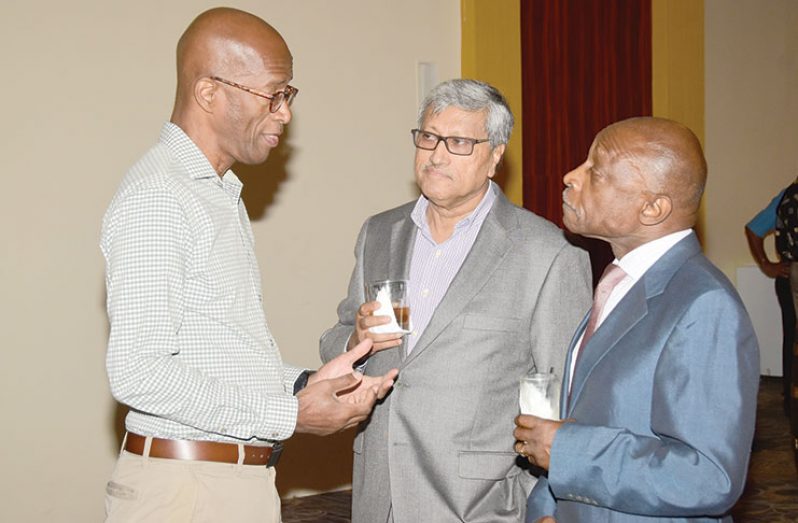–DDL boss Komal Samaroo
THE international market for premium and super premium spirits are growing and as such the Caribbean rums are well positioned to take advantage of this growth.
This is according to chairman of Demerara Distillers Limited (DDL) and West Indies Rum and Spirits Producers’ Association Inc (WIRSPA) Komal Samaroo, who addressed CARIFORUM Rum Producers at Pegasus Hotel Wednesday evening.
The chairman said WIRSPA producers in the region have begun to target the international market by producing high quality products and by securing Geographical Indication (GI) in attempts to highlight themselves as the “place where great rums come from”.
“I believe, over time, our marketing story will be enhanced as we start using our Geographical Indications in our marketing,” Samaroo said, pointing out that Guyana had acquired the same in April 2017 and Jamaica most recently.

On the global stage, the Caribbean rum industry is still relatively small and therefore with this disadvantage in mind several governments of the region have been deliberating on solutions to some of the challenges it faces.
One of these challenges Samaroo highlighted was outdated regulations and laws which need to be adjusted taking in to consideration that the industry has experienced significant changes over the years.
“I have personally started to engage the authorities locally and I think our members across the region should be doing that with their government and I hope that we can have a coordinated approach at the CARICOM level,” the chairman said.
RESPONSIBLE DRINKING
Present at the event was Minister of Foreign Affairs Carl Greenidge, who spoke in relation to the morning session of the forum which focussed on Cooperate Social Responsibility (CSR) on Responsible Drinking.
“I think it is very commendable that the producers of a beverage that is so powerful… should have committed themselves to working along with the rest of the society to ensure that the product is consumed in moderation,” Minister Greenidge said.
He further said that rum and sugar have been an integral part of the economy of the Caribbean and its culture and, therefore, they are difficult to separate.
Nonetheless, like all commodities, there needs to be wise usage.
The minister reiterated previous charges for alcohol consumers to desist from drinking and appoint a designated driver, to consume in moderation while on an empty stomach, and to switch to premium quality spirits as the safer choice.
Adding to this, the DDL chairman said a parallel challenge faced by the region is that whenever there is a negative aspect of alcohol abuse, it is ascribed to rum, even when the spirit may not have been involved.
“I think that is a negative stereotype that, collectively, the industry in the Caribbean must work to overcome,” he said, adding: “We are working very hard to make rum as fashionable and as sophisticated a drink as any other beverage drink in the world.”
Speaking to Guyana Chronicle on the sidelines, Chief Executive Officer (CEO) of WIRSPA Vaughn Renwick said the organisation’s main reason in coming to the sessions was to look at the impact their product has on society.
“Rum itself has a history in the Caribbean that is very, very positive but also has negative aspects. Alcohol has an impact on the health of our people. So we wanted to see what we could do to start making a change to the way people drink so that they drink more responsibly. We want to engage stakeholders to talk about reducing harmful drinking and that was really the core of this session,” Renwick said.
In addition, chairman of J. Wray and Nephew Limited in Jamaica, Clement Lawrence, told this newspaper that the CSR discussions for responsible drinking have been fruitful and his company remains dedicated to the cause.
“Our company is deeply committed to that and that’s why we brought a team here, a delegation of three, so that we could participate in this with our colleagues in the Caribbean.”
Rum is the largest agriculture-based export in the English-speaking Caribbean with foreign exchange earnings topping US$300 million, which contributes to national treasuries across the region.




.jpg)










